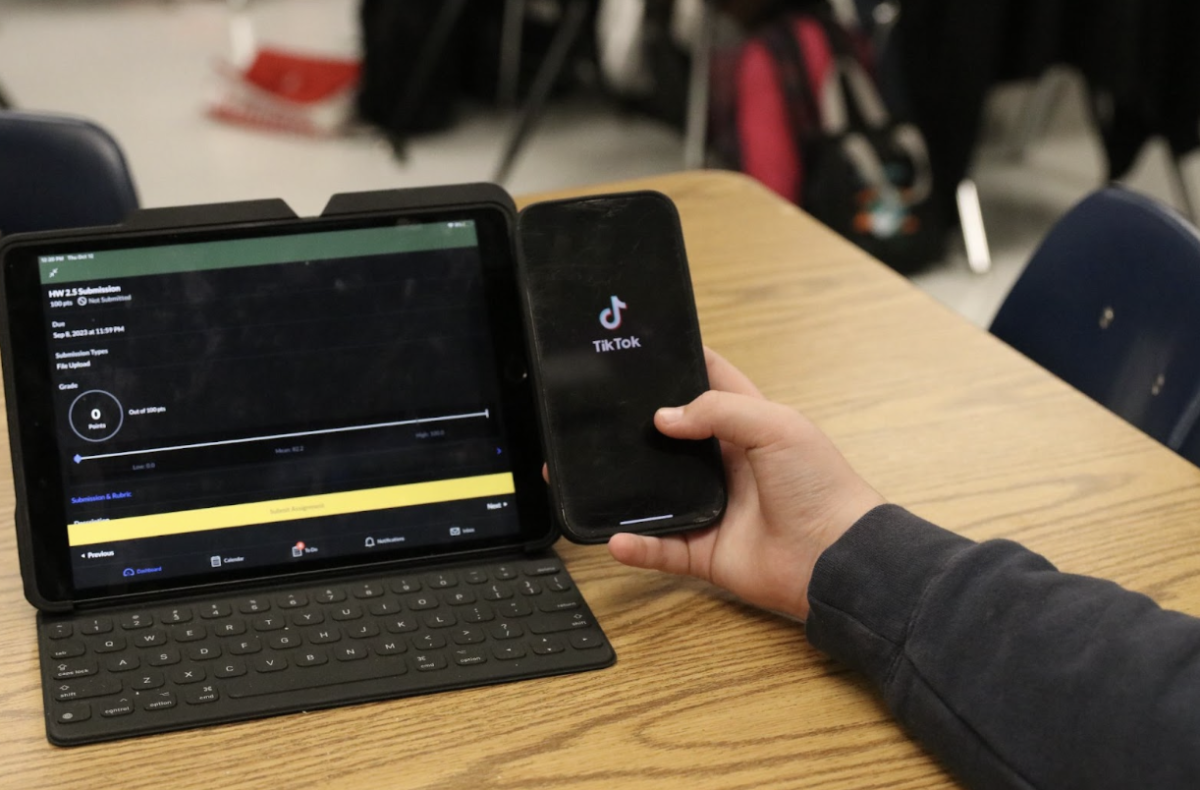Every swipe — a new idea.
Short form content constantly replaces your ability to think about what you just saw with more content. To clarify, short form content is any media that involves the quick scrolling of the user — providing stimulation — but not giving them time to comprehend it.
This new habit is decreasing the creative mindset of teenagers and, instead of combating it, we are embracing it with every scroll. As teenagers, this is the sad reality of the entertainment we are relying on — it’s changing us for the worse.
This is happening in schools, and it’s happening to me — people constantly check their phones to satisfy their craving for immediate stimulation. The sad reality is that when I look around in my class, I can see that at least ¾ of my peers will be engaging on their phone while learning.
Just like my classmates, I have been having trouble paying attention in class. To combat this, I recently set a time limit on my phone to an hour of short form media a day, and plan on decreasing it even more in the future. An hour may sound like a lot, but compared to the 7 and a half hour national average, it’s definitely progress. If there’s one common bad habit that can be fixed, it’s the unhealthy consumption of short form content.
This results in two long term consequences: the reader taking the information for fact without having any time to verify its accuracy, and the reader’s attention span diminishing. Apps, such as TikTok and Instagram, are providing fast pace gratification to a limitless extent, not warning the users of its long term results.
According to the American Psychological Association, our attention spans, measured by generations, have been going down through time with no stop in sight. The reason is, once again, not ourselves, but our screens.
Educators, parents and, most importantly, students need to understand the gravity of the situation before these effects get worse. A common solution, and one I’ve found works best, is decreasing the amount of time on phones and social media, and increasing time with books, movies, articles and more.
The human mind is fragile and can fall victim to external factors, such as short form content, so it’s important to understand these risks and take in media in a more meaningful manner.
Our current culture surrounding digital media and the way we take in information isn’t healthy, and the negative effects it offers are setting in. This new age of information is without a doubt beneficial, but if teenagers want to become better, they need to stay aware of how to take in all this information healthily.






C.B.A • Mar 7, 2024 at 7:26 PM
I’m a high schooler from another state, and I completely agree with every word you have said. We are living in an era where the ability to read a book is considered an applaudable skill, and there is truly no end to this in sight, since most of those affected with this aren’t even aware of the consequences of scrolling through so much “brain rot”. All we can do is sit back and watch the graphs dip down to zero, and meanwhile try to come up with a solution. I thank you writing about this.